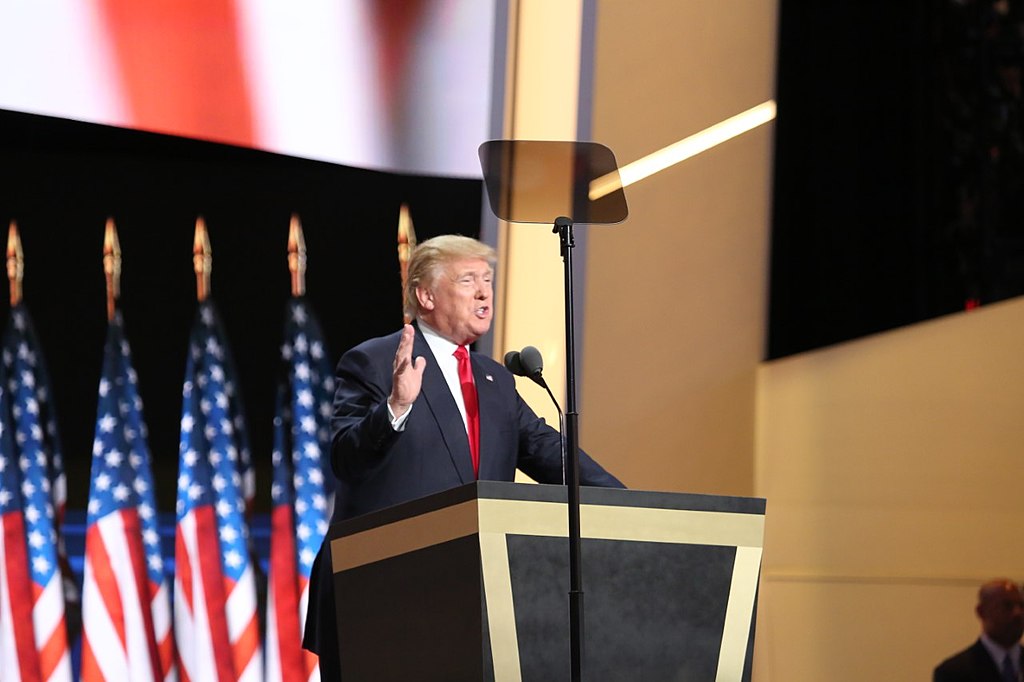Former President Donald Trump is once again at the center of controversy after making a series of bold claims in his latest campaign video. The 78-year-old took to Truth Social, his preferred platform, on September 4 to outline what he believes the world would look like if he had won the 2020 election. In the video, Trump falsely asserted that the United States had "no problems" while he was in the White House, sparking immediate backlash from political commentators and critics.
Trump's statements painted an overly rosy picture of his presidency, claiming there was no inflation, no terrorist attacks, and that global conflicts were non-existent under his leadership. He specifically mentioned that Russia had not taken any land, and Israel had not been attacked during his time in office. This narrative was intended to contrast with what Trump described as a chaotic world under the current Biden administration, suggesting that the U.S. is now hurtling toward "World War III" due to "grossly incompetent" leaders.
However, Trump's statements are inconsistent with the actual events that unfolded during his presidency. While he touted that his administration kept inflation under control, inflationary pressures were evident even before the COVID-19 pandemic hit. The global health crisis further disrupted supply chains and markets, contributing to economic instability worldwide.
In addition, Trump’s claim that there were no global conflicts under his watch overlooks several international incidents, including heightened tensions with Iran, North Korea, and the longstanding conflicts in Syria and Afghanistan. Critics argue that his attempts to downplay these issues are part of a broader effort to rewrite history as he campaigns for the 2024 election.
This isn't the first time Trump has faced criticism for making exaggerated or misleading claims. His Truth Social posts and public speeches frequently feature a mixture of factual inaccuracies and inflammatory rhetoric, raising concerns about his suitability for office. Recently, Trump stated that he was "leading" in most polls against Vice President Kamala Harris. However, polling data from Real Clear Politics and other sources at the time showed him trailing Harris in key metrics, casting doubt on the accuracy of his claims.
During the same campaign video, Trump took aim at current President Joe Biden, mocking him for allegedly sleeping at the beach while neglecting his duties as president. These comments come after a series of personal attacks Trump has made against Biden, often portraying the president as unfit for office. Ironically, critics quickly pointed out that Trump himself was caught snoozing during his New York hush money trial, an incident that has not gone unnoticed by social media users.
While Trump's base remains loyal, his continued reliance on hyperbole and falsehoods has led to growing skepticism among political analysts and undecided voters. As the 2024 election looms, questions surrounding Trump’s leadership, mental fitness, and ability to manage the complexities of the presidency are likely to intensify.
As Trump's campaign moves forward, his rhetoric and its potential consequences will undoubtedly remain a focal point in the ongoing political discourse.



 Trump to Address Nation as U.S. Launches Strikes in Iran, Axios Reports
Trump to Address Nation as U.S. Launches Strikes in Iran, Axios Reports  Israel Launches Fresh Strikes on Iran After Death of Supreme Leader Ayatollah Khamenei
Israel Launches Fresh Strikes on Iran After Death of Supreme Leader Ayatollah Khamenei  NYC Mayor Zohran Mamdani Meets President Trump to Tackle Housing Crisis and ICE Detentions
NYC Mayor Zohran Mamdani Meets President Trump to Tackle Housing Crisis and ICE Detentions  USITC to Review Impact of Revoking China’s PNTR Status, Potentially Raising Tariffs on Chinese Imports
USITC to Review Impact of Revoking China’s PNTR Status, Potentially Raising Tariffs on Chinese Imports  Trump Warns Iran as Gulf Conflict Disrupts Oil Markets and Global Trade
Trump Warns Iran as Gulf Conflict Disrupts Oil Markets and Global Trade  Argentina Senate Approves Bill to Lower Age of Criminal Responsibility to 14
Argentina Senate Approves Bill to Lower Age of Criminal Responsibility to 14  Denver Mayor Orders Police to Protect Protesters, Restricts ICE Access to City Property
Denver Mayor Orders Police to Protect Protesters, Restricts ICE Access to City Property  ICE Hiring Surge Raises Vetting Concerns Amid Rapid Expansion
ICE Hiring Surge Raises Vetting Concerns Amid Rapid Expansion  Pentagon Leaders Monitor U.S. Iran Operation from Mar-a-Lago
Pentagon Leaders Monitor U.S. Iran Operation from Mar-a-Lago  Macron Urges Emergency UN Security Council Meeting as US-Israel Strikes on Iran Escalate Middle East Tensions
Macron Urges Emergency UN Security Council Meeting as US-Israel Strikes on Iran Escalate Middle East Tensions  U.S.-Israel Strike on Iran Escalates Middle East Conflict, Trump Claims Khamenei Killed
U.S.-Israel Strike on Iran Escalates Middle East Conflict, Trump Claims Khamenei Killed  Philippines, U.S., and Japan Conduct Joint Naval Drills in South China Sea to Boost Maritime Security
Philippines, U.S., and Japan Conduct Joint Naval Drills in South China Sea to Boost Maritime Security  Trump Media Weighs Truth Social Spin-Off Amid $6B Fusion Energy Pivot
Trump Media Weighs Truth Social Spin-Off Amid $6B Fusion Energy Pivot  Iran Supreme Leader Ayatollah Ali Khamenei Killed in Israeli, U.S. Strikes: Reuters
Iran Supreme Leader Ayatollah Ali Khamenei Killed in Israeli, U.S. Strikes: Reuters  HHS Adds New Members to Vaccine Advisory Panel Amid Legal and Market Uncertainty
HHS Adds New Members to Vaccine Advisory Panel Amid Legal and Market Uncertainty  Pentagon to Halt Ivy League Programs for U.S. Military Officers Starting 2026
Pentagon to Halt Ivy League Programs for U.S. Military Officers Starting 2026  Russia Signals Openness to U.S. Security Guarantees for Ukraine at Geneva Peace Talks
Russia Signals Openness to U.S. Security Guarantees for Ukraine at Geneva Peace Talks 































